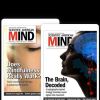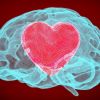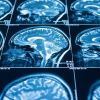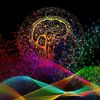-
 +22 +1
+22 +1Study shows that thinking hard about complex problems results in distinct facial muscle movement patterns
Psychology theories suggest that humans tend to primarily invest significant mental resources on problems that will reward them for their efforts. More specifically, they propose that before they start thinking in great depth about a problem, humans ponder on whether the benefits of solving it outweigh the "cost" in terms of required mental efforts.
-
 +4 +1
+4 +1Feeling unsafe in everyday life is linked to heightened cortisol levels in adolescents
New research published in Psychoneuroendocrinology explored the relationship between adolescents’ perceived safety, cortisol levels, and race. The findings indicated that race did not play a role in feelings of perceived safety among U.S. adolescents. However, for all participants, those who reported feeling less safe also had higher cortisol levels. This reinforces the work of other researchers who have found a link between stress and higher cortisol levels.
-
 +4 +1
+4 +1I say dog, you say chicken? New study explores why we disagree so often
Is a dog more similar to a chicken or an eagle? Is a penguin noisy? Is a whale friendly? Psychologists at the University of California, Berkeley, say these absurd-sounding questions might help us better understand what’s at the heart of some of society’s most vexing arguments.
-
 +19 +1
+19 +1How Our Time Perception Flips at Midlife
Midlife is a time of self-reflection—a time in your life when you’re likely to find yourself thinking about who you’ve been, who you are, and who you are becoming. It’s a time for connecting the dots between past, present, and future: allowing yourself to reflect on all that learning and growth while also daring to imagine new possibilities into being.
-
 +22 +1
+22 +1Scientists Say They Can Damage Memories of Being Cheated On
We're going on 20 years since "Eternal Sunshine of the Spotless Mind" devastated film lovers — and now, it seems like something approaching the memory-erasing science it depicted may be close to fruition. New research published in the Journal of Affective Disorders describes how the researchers instructed test subjects to recall traumatic memories of "romantic betrayal" under the influence of the beta-blocker propranolol, which is typically prescribed for high blood pressure, migraines, and anxiety disorders.
-
 +18 +1
+18 +1A trait called "morbid curiosity" might explain why some people are attracted to violent music like death metal
Morbid curiosity — a psychological trait that may help people explore dangerous parts of life — might explain why certain people gravitate toward music like death metal and rap. A recent experiment found that high levels of morbid curiosity can predict enjoyment and consumption of violently-themed music. The findings were published in the journal Personality and Individual Differences.
-
 +3 +1
+3 +1Playing Video Games Has an Unexpected Impact on Kids' Intelligence, Study finds
Researchers have linked spending more time playing video games with a boost in intelligence in children, which goes some way to contradicting the narrative that gaming is bad for young minds. While the difference in cognitive abilities was a small one and isn’t enough to show a causal relationship, it is enough to be notable – and the study was careful to factor in variables including differences in genetics and the child’s socio-economic background.
-
 +14 +1
+14 +1Humans Can Learn to 'Echolocate' in Just 10 Weeks, Experiment Shows
Most humans can learn how to echolocate, using their tongue to make clicking sounds and interpreting the echoes that come back, reflected from the surrounding environment. Despite how useful this skill can be, very few blind people are currently taught how to do it.
-
 +11 +1
+11 +1Why You Can’t Remember Being Born: A Look at ‘Infantile Amnesia’
Whenever I teach about memory in my child development class at Rutgers University, I open by asking my students to recall their very first memories. Some students talk about their first day of pre-K; others talk about a time when they got hurt or upset; some cite the day their younger sibling was born.
-
 +17 +1
+17 +1Why Your Brain Needs to Dream
We often hear stories of people who’ve learned from their dreams or been inspired by them. Think of Paul McCartney’s story of how his hit song “Yesterday” came to him in a dream or of Mendeleev’s dream-inspired construction of the periodic table of elements.
-
 +14 +1
+14 +1Background music can make us less cautious
Background music is a feature of most people’s everyday lives. Whether it’s while driving, at the gym, at home, or even at work, we often have music playing while we’re doing something else. Research into precisely how this affects our behaviour, emotions and cognitive processes have provided mixed findings, however.
-
 +11 +1
+11 +1Windows to the soul: Pupils reveal 'aphantasia', the absence of visual imagination
Visual imagination – or rather, the lack of it – can be verified by measuring pupil dilation, thereby providing the first physiological evidence of aphantasia, new research shows. The study, led by researchers from UNSW Sydney and published in eLife, found that the pupils of people with aphantasia did not respond when asked to imagine dark and light objects, while those without aphantasia did.
-
 +21 +1
+21 +1Virtual reality can induce mild and transient symptoms of depersonalization and derealization, study finds
New research sheds light on how virtual reality (VR) can influence a person’s sense of reality. The findings have been published in the journal Computers in Human Behavior. There have been some preliminary indications that the use of VR technology can induce feelings of alienation towards one’s own self and a feeling of detachment from reality — phenomena known as depersonalization and derealization, respectively. To provide a clearer understanding of VR’s true effects, the authors of the new study conducted a longitudinal randomized control trial.
-
 +17 +1
+17 +1The UN said nuclear war is 'back within the realm of possibility.' Here are the places in the US most likely to be hit in a nuclear attack.
The UN secretary-general said nuclear war is "back within the realm of possibility" following Russia's warning it was putting its nuclear forces on alert amid its war in Ukraine that threatens to draw NATO into direct combat with Russia.
-
 +4 +1
+4 +1Asking people to use "your heart, rather than your brain" increases prosocial behaviors, study finds
A recent study examined the effects of rational (“brain”) and affective (“heart”) decision modes, and individual differences in processing styles on prosocial behaviors, finding that affective decision mode increased prosocial behaviors. Processing style (i.e., intuitive vs. deliberative processing) did not predict prosocial behaviors or interact with decision mode. This research was published in the journal Judgment and Decision Making.
-
 +26 +1
+26 +1Do our lives flash before our eyes when we die? A new study thinks so
Scientists unintentionally recorded the brain activity of a dying 87 year-old man providing an insight into what happens to our brain when we die. The elderly man was admitted to hospital after a fall and developed epilepsy. Dr Raul Vicente of the University of Tartu, Estonia and his colleagues used continuous electroencephalography (EEG) to detect the seizures and treat the patient.
-
 +19 +1
+19 +1Why we feel confident about decisions we make
A team of researchers led by ETH Professor Rafael Polanía has shown for the first time that decisions feel right to us if we have compared the options as attentively as possible – and if we are conscious of having done so. This requires a capacity for introspection.
-
 +17 +1
+17 +1Are Rocket Scientists and Brain Surgeons Really Smarter Than Everyone Else?
Despite the commonly used phrases “It’s not rocket science” and “It’s not brain surgery” the findings show that both aerospace engineers and neurosurgeons have similar levels of intelligence to those in the general population. As such, the researchers say that both specialties might be unnecessarily put on a pedestal, and that phrases unrelated to careers such as “It’s a walk in the park” might be more appropriate.
-
 +14 +1
+14 +1We Mistake Information We’ve Googled For Our Own Knowledge
In many ways, the internet has democratized knowledge, allowing people to access more information than they could possibly dream of reading. No matter where your interests lie, there is almost certainly something new to learn online.
-
 +15 +1
+15 +1Is Depression Actually a Unique State of Consciousness?
Researchers in psychology, psychiatry, and neuroscience have struggled for years to define, understand, and analyze depression, which torments untold millions of people around the globe. In clinical diagnosis, depression is understood as a collection of symptoms, which must be present together in sufficient number and for a certain length of time.
Submit a link
Start a discussion




















